
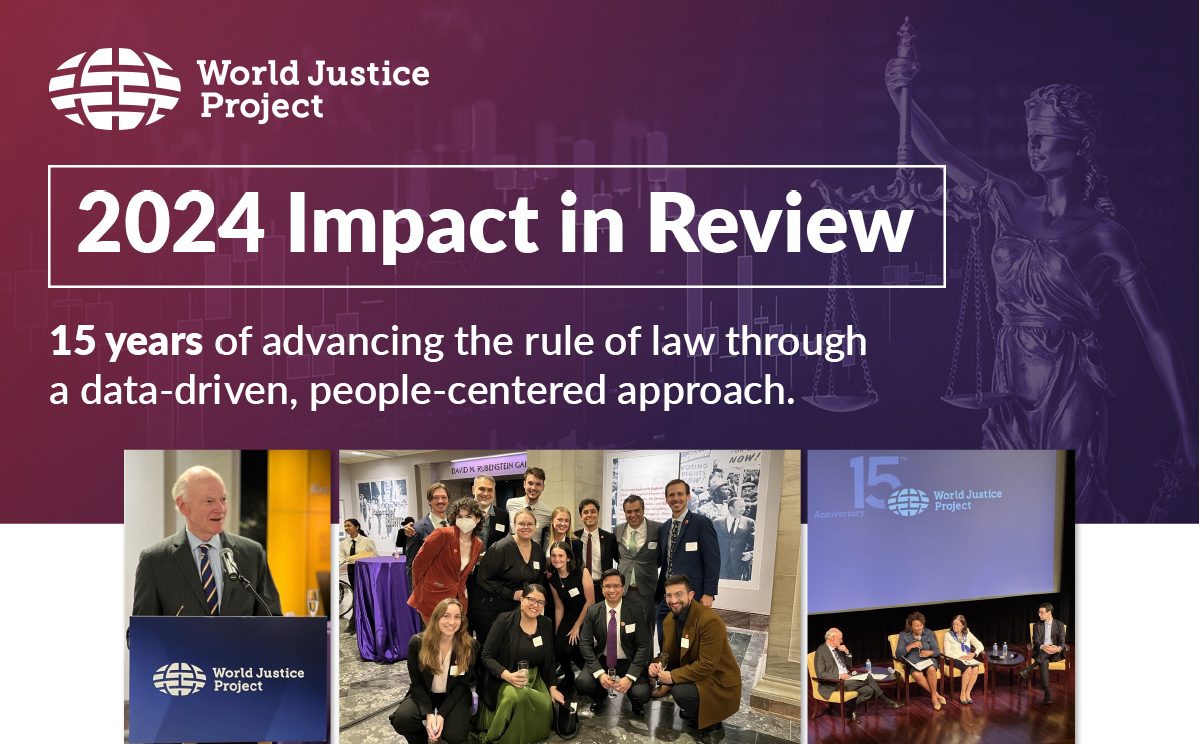
As our 15th year comes to a close, we reflect on the singular focus that has guided our journey: understanding that the rule of law shapes the daily experiences of people around the globe. Since 2009, we've delved deep into communities worldwide, asking people to share their perspectives. We’ve learned how the rule of law extends beyond legal institutions to people’s access to justice, opportunity, and peace.
This September, we celebrated 15 years of advancing the rule of law with tributes from around the world and lively discussions with government and business leaders about tackling challenges. This milestone event reinforced our commitment to use our data to drive policy reform. Where the rule of law is stronger, so are people’s chances to live healthy and fulfilling lives.
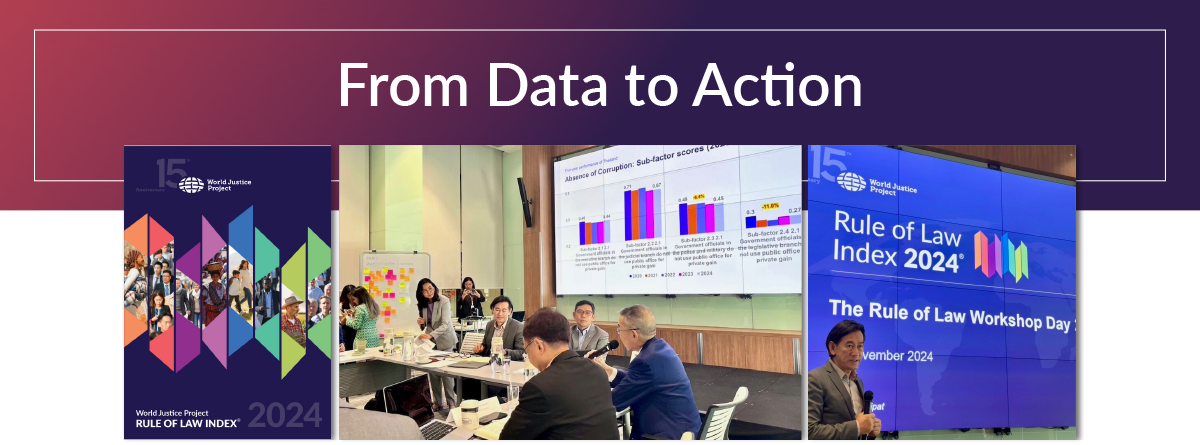
Documenting gaps and gains
This October, our latest WJP Rule of Law Index revealed that 6.3 billion people live in countries where the rule of law has declined since 2016. Yet, despite the continuing global rule of law recession, we’ve documented areas of progress. Corruption declined globally over the last year, and countries like Poland and Zambia are rolling back authoritarian trends and advancing people-centered justice.
Creating national rule of law roadmaps
Building on the momentum of our action-oriented Asia-Pacific Rule of Law Research Conference in Singapore in June, we hosted our latest policy change forum in Bangkok last month. In collaboration with the Thailand Institute of Justice, we convened Thai officials and civil society representatives to develop data-driven recommendations aimed at strengthening the rule of law within the Thai justice system. With participation from representatives of the Japan International Cooperation Agency (JICA), as well as delegates from Laos and Vietnam, the event fostered cross-border learning and potential partnerships across the region.
We remain committed to working with governments, donors, and local stakeholders worldwide to leverage our data in advancing rule of law reforms. Currently, we are in dialogue with government representatives from Costa Rica, the Dominican Republic, Malawi, Mongolia, Uzbekistan, and Zambia to pursue similar initiatives.
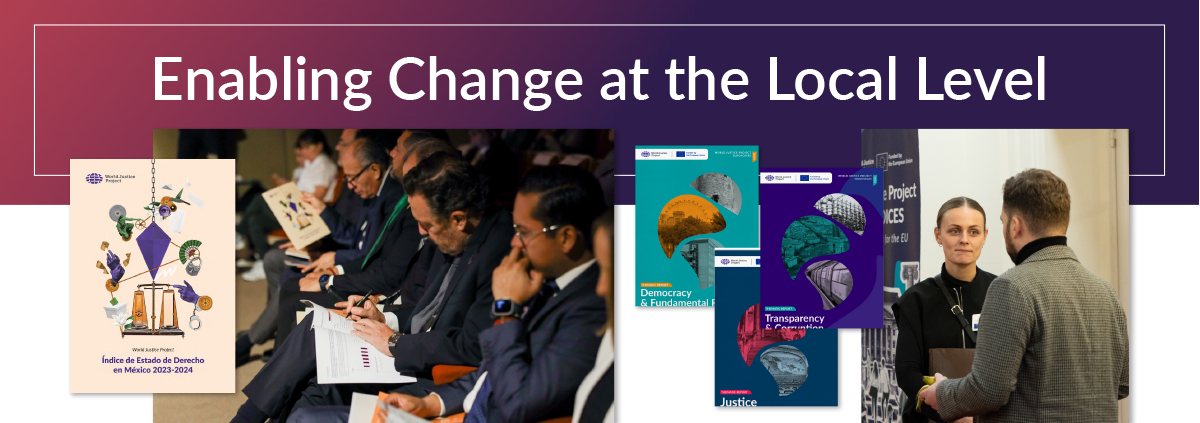
From Mexico to the European Union
Building on the continued success of our Mexico States Rule of Law Index to inspire and advance local justice, security, and anti-corruption reforms we launched our most ambitious subnational rule of law project ever this November.
World Justice Project EUROVOICES captures the perspectives of 72,000 local people and legal experts to reveal rule of law variations across 110 local regions of all 27 European Union countries. Our new interactive website equips policymakers, researchers, and changemakers with a treasure trove of disaggregated data and new evidence that access to justice, human rights, and good governance are closely tied to economic opportunity.
An evidence-based initiative to curb torture
We are also expanding our support for local reformers in Mexico by assessing the strengths and challenges of the justice system. Through our renewed partnership with Mexico’s national statistics agency, we are analyzing the experiences of 64,150 incarcerated individuals, from arrest to court to prison. Leveraging these insights, we will collaborate with several states to advance reforms that strengthen accountability, ensure effective justice, and prevent the widespread torture we first documented in 2019.
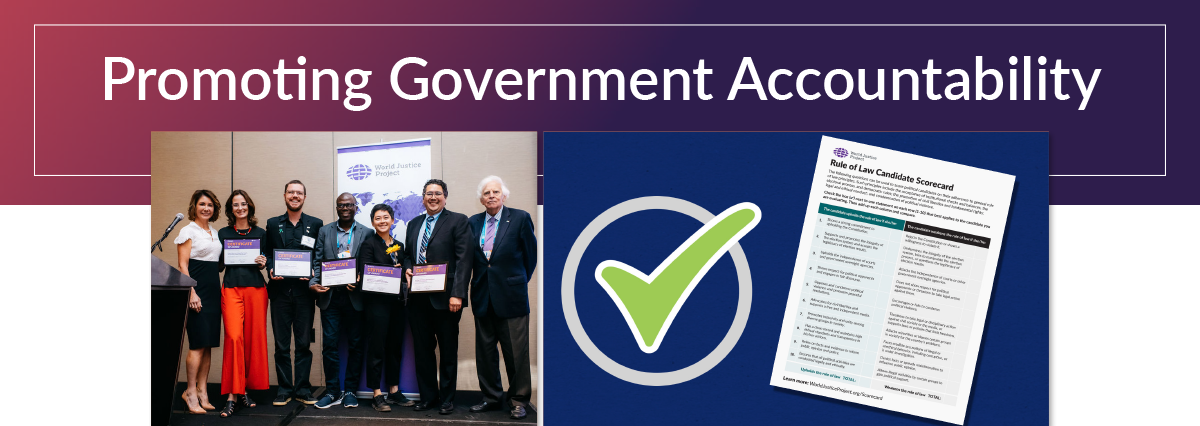
Elevating changemakers
With our WJP Rule of Law Index highlighting the continued rise of authoritarian trends, we set out to identify promising practices that strengthen the rule of law foundation of democracy.
Our World Justice Challenge 2024 competition attracted 424 applications and culminated at the American Bar Association annual meeting in Chicago this August. We hosted 30 changemakers from 23 countries to showcase innovative projects strengthening elections, justice institutions, youth engagement, and access to media and information. We celebrated five inspiring winners, convened discussions on disinformation and judicial independence, and welcomed Polish Minister of Justice Adam Bodnar, who shared lessons from fixing a broken democracy with hundreds of American state and local bar leaders.
Building trust in elections
Amidst a pivotal year of global elections, including the 2024 U.S. elections, we released a widely covered report on troubling U.S. rule of law trends alongside a candidate rule of law scorecard. These tools and our collaborations with local bar leaders and election leaders inspire grassroots participation to rebuild trust in institutions that uphold the rule of law.
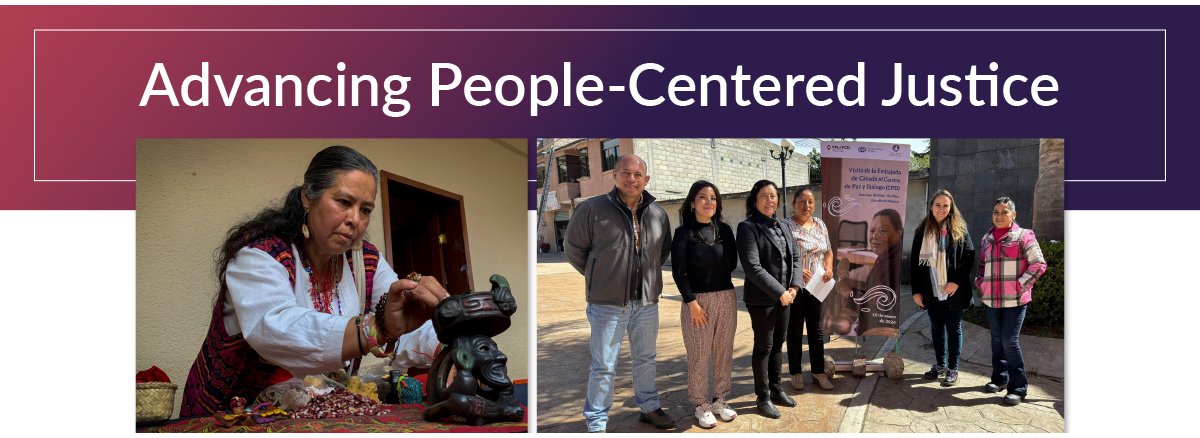
Expanding alternative justice in Indigenous communities
In Mexico, we continue to document traditional practices of dialogue and reconciliation and to identify effective strategies for expanding justice in marginalized communities. This month, we hosted our second meeting of local judicial authorities and Indigenous mediators to elevate community-based centers of peace and dialogue. Each exchange deepens our collective commitment to preserving time-honored methods that place local voices at the heart of sustainable justice.
Partnering with justice leaders
In the Dominican Republic, we are collaborating with the Ministry of Justice to adopt a people-centered approach to improving justice delivery. This includes developing indicators to identify people’s justice needs and assessing how the justice system responds to those needs. We are also exploring ways to adapt our Open Justice Metric to support Dominican institutions by providing data-driven insights that enhance transparency and accountability in the country’s justice system.
From local to global
These local and national efforts connect directly to our work on the global stage. This month, we contributed a chapter to the Sustainable Development Goals (SDG)16 Data Initiative’s annual report, highlighting the critical link between access to justice (SDG 16) and eradicating poverty (SDG 1).
We are actively engaged in shaping the groundbreaking Ibero-American Convention on Access to Justice, and our participation in in national and regional dialogues this November reinforces our commitment to a people-centered approach to justice in the region.
Additionally, with the support of the Dutch Ministry of Foreign Affairs, and in partnership with OECD and HiiL we are developing a people-centered-justice indicator framework that can be scaled globally.
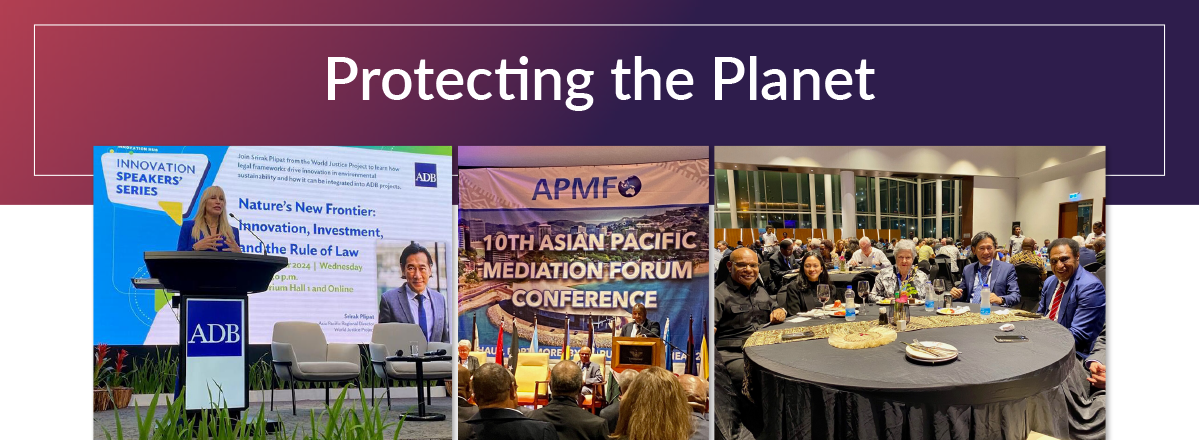
Environmental rule of law
Amid global efforts to address climate change more effectively, including legal action at the World Court and negotiations at COP24, our new strategic plan recognizes the critical importance of environmental rule of law. Drawing on our experience developing environmental governance indicators in Latin America, our Asia-Pacific regional director, Srirak Plipat, shared our expertise at the Asian Development Bank’s Innovation Speakers’ Series and advocated for data-driven strategies to ensure environmental protection.
Our new partnership with Reforestamos Mexico and the International Union for Conservation of Nature (IUCN) will focus on applying to environmental governance international best practices in transparency, accountability, participation and justice, ensuring that environmental protection is both effective and equitable.
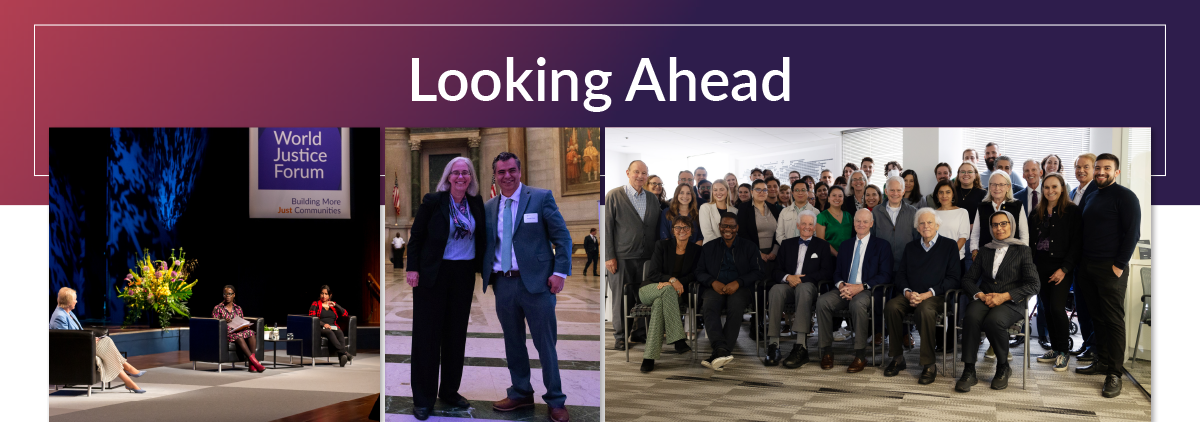
World Justice Forum 2025
Looking ahead, we are preparing to host the 2025 World Justice Forum in Warsaw, Poland, from June 23-26, 2025 This event will bring together rule of law champions from around the world to address the ongoing global rule of law recession, fostering collaboration and innovative solutions to counter authoritarian trends. Please mark your calendars to join us and watch for registration to open in January.
Leadership transition
This February, we will welcome Chief Research Officer Alejandro Ponce’s transition to a new role as our next executive director! A driving force behind WJP’s research and data collection efforts, including the WJP Rule of Law Index, Alejandro is globally recognized for his deep expertise and passion for data-driven, people-centered justice. We're excited for our next chapter, and grateful to Elizabeth Andersen for the past six years of her outstanding leadership and vision, which have been instrumental to the WJP's growth and impact around the world.






